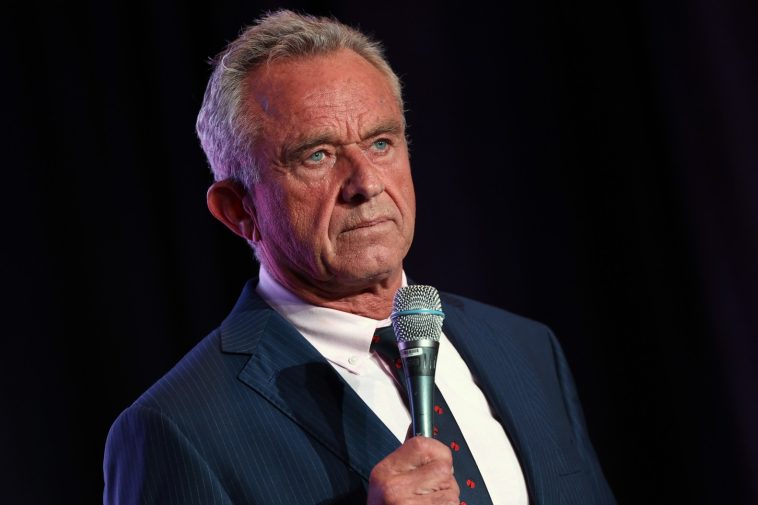Robert F. Kennedy Jr. has initiated a legal battle against the North Carolina election board, seeking to retract his name from the presidential election ballot for 2024. This move came after the board rejected his previous attempt last week. The turn of events follows his decision to step back from the race and subsequently endorse the previous President Donald Trump during the past month.
Mr. Kennedy, who previously ran as an Independent, took his case to the Wake County Superior Court just this Friday. Therein, he claimed that the refusal of the board to erase the name of the party ‘We the People’ which had nominated him, was an infraction on the state’s election statutes, as well as an infringement on his own right to freedom of speech; this is as per information acquired from the News & Observer.
Despite the fact that Kennedy has resorted to legal action to retract his name from North Carolina’s list of presidential contenders, Kennedy’s legal council still appealed to a state appellate court to reinstate his spot on New York’s ballot, in a related lawsuit carried out last Wednesday.
Prior to his exit from the contest, Kennedy had been engaged in a spirited struggle to retain his position on the New York ballot. His residential status within the state had been a subject of contention. Eventually, he was precluded from the ballot just before he declared his departure from the race.
Alongside the flurry of legal activities, it’s worth noting that, last Monday, Mr. Kennedy had processed his candidate filing in the state of Oregon. Concurrently, he’s endeavoring to pull out his name from other key swing states, including the state of Maine.
Interestingly, it was during a meeting on Thursday when the Democrats on the North Carolina election board managed to outvote the Republicans by a 3-2 margin. This vote concluded in the denial of Kennedy’s request to remove his name from the ballot.
In a state as broad and populous as North Carolina – comprising some 100 counties – it’s important to note that 67 of these have already started the printing process for the ballots. Recent data suggests nearly 1.7 million have been produced, which are slated to be dispersed by September 6.
While an individual’s candidacy and presence on the ballot might seem like a minor detail in the grand scheme of a presidential election, reissuing the printed ballots carries a substantial financial cost. According to Karen Brinson Bell, the Board Executive Director, the cost for reprinting the ballots would easily run into hundreds of thousands of dollars.
It’s clear that there are not just political considerations in play, but also financial ones. Ultimately, the decision is not solely in Kennedy’s or the election board’s hands, but also in the hands of a system that deals with cost-analysis and procedure.
On another note, political observers have noted that to date, Kennedy’s trajectory in the polls across North Carolina has shown consistent figures, maintaining a steady ground at about 3%.
While Kennedy’s lawsuits and withdrawn candidacy may make headlines, it’s just one thread in the rich tapestry of an upcoming presidential election. The saga unfolds within an intricate landscape that involves state laws, political parties, and millions of voters.
His journey provides a fascinating case study for those interested in understanding the complexities of election law and the hurdles candidates may face – from fighting for a spot on a state’s ballot, upholding their rights to freedom of speech to considering the overall logistical and financial implications.
The upcoming months will see how these legal proceedings pan out and what consequences they entail for not just Robert Kennedy Jr, but for the broader political landscape. The situations surrounding Kennedy’s candidacy, withdrawal, and ensuing battle could potentially shape future precedents in the complex world of election law.
It’s a reminder that behind every major election, there are numerous lesser-known stories, legal struggles and key players. The myriad factors that influence elections range from political campaigning to public opinion, from state laws to court rulings, and every action with a potential ripple effect on the outcome.


